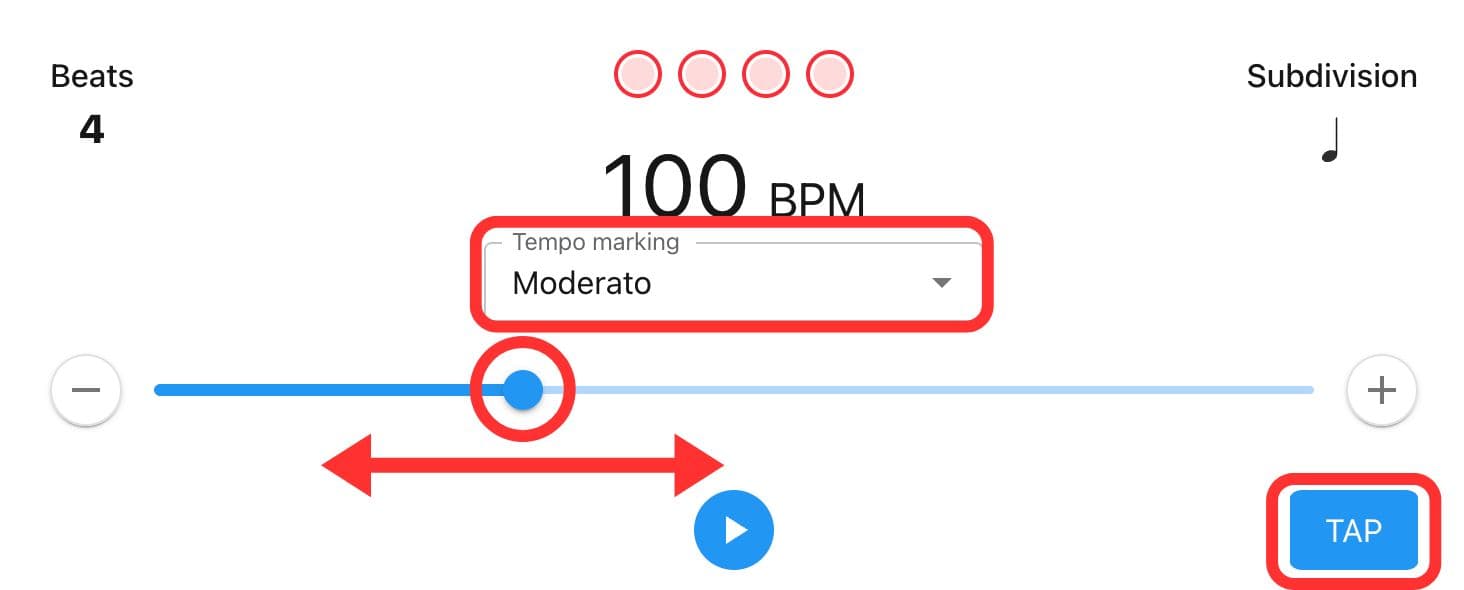Online Metronome
Loading sounds...
How to Get the Most Out of This Free Online Metronome?
1. Set the Right Tempo

Choose the tempo from the tempo marking or shift the slider to set the BPM (Beats Per Minute) or tap your pulse.
Learn more about tempo markings2. Set the Number of Beats Per Measure
Understand time signatures. Time signatures are often found at the beginning of the staff in sheet music. Common time signatures include:
- •(2 beats per measure) Used for fast-paced music like polkas. Set 2-beat.
- •(3 beats per measure) Ideal for swing and waltz music. Set 3-beat.
- •(4 beats per measure) Widely used in rock, pop, and classical music. Set 4-beat.

Beat 1 to 4: Accent, Non-accent, Accent, Rest
Choose the number of beats per measure and set your beat pattern. The first beat of each measure is usually the strongest. Adjust the type of each beat by clicking on the visual blocks to add accents/rests.
Learn more about time signatures3. Use Beat Subdivision for Accuracy
Most practice sessions benefit from hearing the sub-beats. Change the subdivision to hear:
- Quarter note - 1 note per beat. Set 1 sub-beat.
- Eighth notes - 2 notes per beat. Set 2 sub-beat.
- Triplets - 3 notes per beat. Set 3 sub-beat.
- Sixteenth notes - 4 notes per beat. Set 4 sub-beat.

Sub-beat click: On, Off, On, On
In addition, you can mute the click on particular sub-beats to benefit from practicing a complex rhythm.
Learn more about beat subdivision4. Choose your Favorite Click Sound
Experiment with different click tones to find one that enhances your practice. Some options include: Woodblock, Beep, Voice.
In particular, the voice tone can help you internalize the beat better with the "1 E & A" counting method. This system uses numbers, "and", "E" (pronounced "ee") and "A" (pronounced "uh") vowel sounds to count sub-beats.




- Quarter note subdivision - count with numbers only, e.g. 1 2 3 4
- Eighth notes subdivision - count with "and", e.g. 1 & 2 & 3 & 4 &
- Triplets subdivision - count with "and" and "A", e.g. 1 & A 2 & A 3 & A 4 & A
- Sixteenth notes subdivision - count with "E", "and" and "A", e.g. 1 E & A 2 E & A 3 E & A 4 E & A
5. Save your metronome setting
To save your metronome setting, click the share button and save the link for later use.